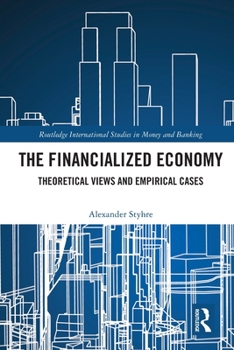The Financialized Economy: Theoretical Views and Empirical Cases
Select Format
Select Condition 
Book Overview
Social science theorists from various scholarly disciplines have contributed to a recent literature that examines how the finance industry has expanded and now wields increasing influence across a variety of economic fields and industries. In some cases, this tendency towards a more sizeable and influential finance industry has been referred to as "the financialization" of the economy. This book explains how what is referred to as the finance-led economy (arguably a more neutral and less emotionally charged term than financialization) is premised on a number of conditions, institutional relations, and theoretical propositions and assumptions, and indicates what the real economic consequences are for market actors and households.
The book provides a theoretically condensed but empirically grounded account of the contemporary finance-led economy, in many cases too complicated in its design and rich in detail to be understood equally by insiders--empirical research indicates--and lay audiences. It summarizes the relevant literature and points at two empirical cases, the construction industry and life science venturing, to better illustrate how the expansion of the finance industry has contributed to the capital formation process, and how the sovereign state has actively assisted this process. It offers a credible, yet accessible overview of the economic conditions that will arguably shape economic affairs for the foreseeable future.
The book will find an audience amongst a variety of readers, including graduate students, management scholars, policymakers, and management consultants.





